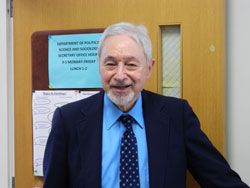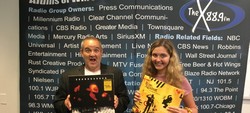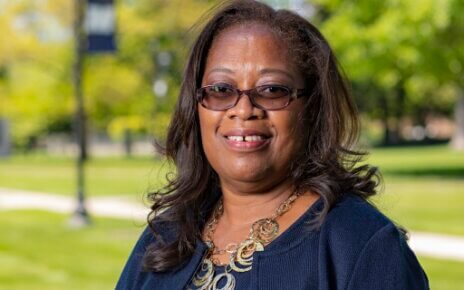The Beta Beta Beta (Tri Beta) Biology Honor Society hosted a bone marrow drive in the Rebecca Stafford Student Center (RSSC) for students interested in helping people with bone marrow deficiency diseases.
The honor society swabbed cheeks to test their DNA and determine if certain genes matched the genes of people who lack bone marrow due to illness. Certain diseases that cause a lack of bone marrow include cancers such as leukemia, lymphoma and myeloma.
The swabs were placed in an envelope and sent to the Delete Blood Cancer DKMS registry. If the DNA of a certain person is found to be a match, officials from the registry contact that individual and ask if they would be willing to donate their bone marrow.
People can donate by either giving blood or traditional bone marrow samples, though the process is extremely confidential.
The goal of Tri Beta’s drive was to add more people to the bone marrow registry, which is a list of potential donors who are removed after they turn 61-years-old.
“I thought that it was an extremely beneficial event and very accessible for University students,” Casey Inguagiato, a business student and registered donor, said. “It was quick and took little effort so it was very effective and easy to get students to participate.”
The event was a great learning experience, Inguagiato said. “I never knew how much information you can retain from a simple cheek swab,” she added.
The first bone marrow drive hosted by Tri Beta took place two years ago. Fifty-two people registered and three of those people were found to be matches, which made them eligible to donate.
The more people that sign up and join the registry, the higher the chances are for creating a match. Kandria Ledesma, the Tri Beta President said, “Only two percent of the U.S. population is on the whole bone marrow registry. You want to broaden that range to possibly find a match.”
According to Ledesma, one reason why many people are hesitant to donate is because of the methods people believe are used to extract bone marrow.
Previously, needles were used to extract bone marrow directly from the donor, which can be a painful process. However, most people are unaware that today about 80 to 90 percent of the time the process is accomplished by taking blood, she said, which is the least painful method.
Registering to donate is even less painful, Ledesma said. The process takes a few minutes and only requires swabbing the inside of a person’s cheek and answering a few questions. “If there’s something I can do that can benefit someone in any way, I don’t even think about it. I just do it,” Ledesma says.
“I felt good about registering to donate because hopefully I could be a match for someone,” Madelyn Mauterer, a member of Tri Beta and a biology major, said. “My grandmother is currently fighting leukemia and my high school track coach’s 10-year-old daughter is as well, so I’ve seen how blood cancers affect the lives of those infected and their families.”
Mauterer said she does not worry about the pain of donating if she ever does get matched. “I know it’s more than worth it to save someone’s life and is nothing compared to the pain they’re going through fighting cancer,” she added.
A total of 24 donors registered at this year’s bone marrow drive. “We need more people to know about this drive because there are many bone cancers out there,” Ledesma said.
With such a small amount of time left in the semester, Tri Beta hopes future members will continue the drive in the coming years, at least once per semester.



